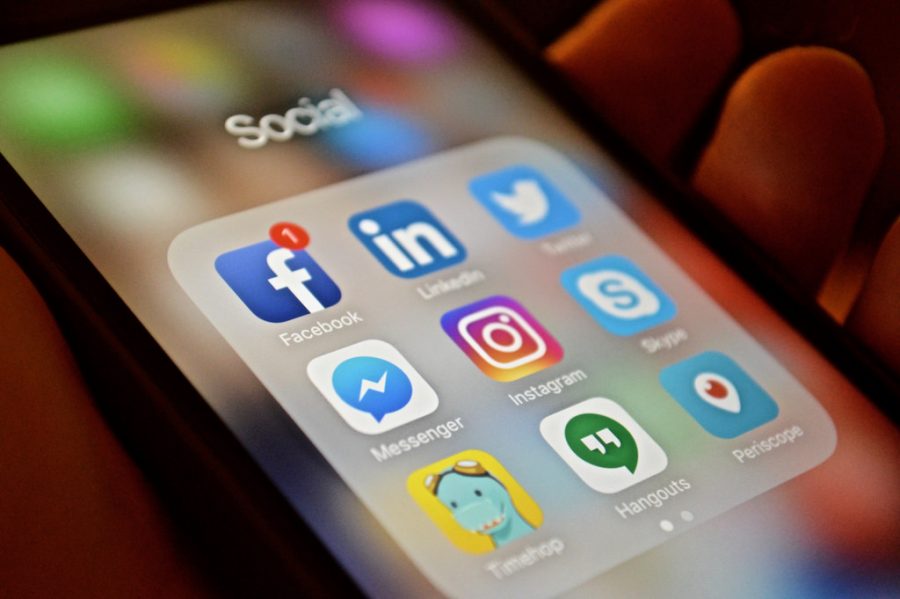Off The Grid
Meet the people who refuse to use social media
September 26, 2018
Junior Ashley Tom received her first iPhone in ninth grade, finally graduating from candy bars and flip phones. She made her first personal email in seventh grade. Yet Tom still doesn’t have any social media accounts.
According to the Pew Research Center in 2014 and 2015, 94 percent of teenagers in the United States have a mobile device and 71 percent say they use multiple different social media platforms.
Despite the overwhelming presence of social media today, there are people like Tom who steer clear of social media due to their own beliefs on the use of social media and its effect on their life.
“My parents think that having social media is distracting,” Tom said. “I agree [with them]: once you get on your phone, it’s sort of hard to get off [of it].”
According to The Washington Post, teens spend about nine hours every day consuming media for enjoyment. However, senior Cindy Guan would rather spend time doing something productive that she cares about, like art, rather than waste her hours on social media.
“Social media is very casual – it invites you to be casual,” Guan said. “I prefer to have serious conversations about things I’m interested in, maybe investing my time in hobbies rather than social media.”
Despite having an overall negative outlook on social media, Guan admires the productive uses of social media, like posting or watching instructional videos on YouTube and artwork on Pinterest. However, Guan mentions she’s never been a social person and credits this reason for not joining social media; she prefers spending time by herself. Due to her introverted personality, she never really found a use for social media in her life.
“In elementary school, I used to be a really shy person,” Guan said. “I didn’t really like putting myself out there, and that sort of passes into my dislike of social media [now].”
Similar to Guan, math teacher Martin Jennings explains that social media is not a productive use of his time. He’d rather spend quality time with his friends and family, creating, as he says, “real human connections.”
“I don’t want to spend my time sitting on the phone, looking at posts that are written from I don’t know [where],” Jennings said. “I’d rather talk to my friends, or play with my friends, or see my friends.”
Jennings acknowledges the benefits of social media, such as the ability to stay in touch with people. However, he believes that the negative effects outweigh the small benefits.
“It’s not much the social media that annoys me,” Jennings said. “What annoys me is that people are oblivious to what’s going on around them and are focused on what’s on their phone. They’re so connected to those posts, those media interactions, that they aren’t available for the interactions that are right around them.”
Jennings is also concerned with the privacy aspect of social media. Due to this, he does not want to share personal information about himself online. Similarly, Tom also mentions how her mom is suspicious of the content on the internet, which may influence her daughter negatively. It’s one reason why Tom’s parents have access to all of her passwords, to monitor the things Tom signs up for.
Both Guan and Tom use email and texting as their primary source of communication. Tom further explained how connecting with her friends has proved to be difficult at times, because she doesn’t have a data plan and can only text people who have an iPhone.
“I didn’t know what ‘smh’ or ‘lmao’ meant [when I got my phone], so I would have to constantly Google everything up and then at that point it was more of a hassle trying to decode stuff,” Tom said. “I felt how people who were disconnected from other people felt … because you can’t [keep up with] the world because once you stop you are disconnected, and it’s hard to reconnect.”
Many MVHS students use social media for school purposes; there are Facebook groups for classes to ask questions about upcoming tests, content and instructions for an assignment.
“[The internet is] like an open can of worms, because you can do [anything] on the internet,” Tom said.
Guan agrees that the internet can be consuming, as a few minutes a day can quickly manifest into an addiction. She believes that the internet and social media should be used cautiously.
“If you’re on social media, then you can talk with other people about your experiences,” Guan said. “It’s like enriching yourself through conversation. It’s also very convenient if you want information … but it does not mean that you should use [it] all the time.”
















